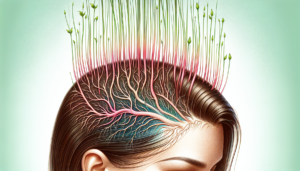Top Herbal Teas for Promoting Sleep
Top Herbal Teas for Promoting Sleep
Sleep is an essential part of overall health and well-being, yet many struggle to achieve the restful night they crave. Herbal teas have gained popularity for their natural properties that promote relaxation and sleep. This article will explore some of the finest herbal teas that can help foster a peaceful night’s sleep, their benefits, potential side effects, and preparation methods.
1. Chamomile Tea
Description: Chamomile tea, made from the dried flowers of the chamomile plant, is renowned for its calming effects.
Benefits:
- Sleep-Inducing Properties: Chamomile contains apigenin, an antioxidant that binds to specific receptors in the brain, promoting sleepiness and reducing insomnia.
- Anxiety Reduction: Its soothing qualities can help decrease anxiety, paving the way for a more restful sleep.
Preparation: Use 1-2 teaspoons of dried chamomile flowers per cup of boiling water. Steep for 5-10 minutes and strain before drinking.
Side Effects: Chamomile is generally safe, but those allergic to ragweed or similar plants should avoid it.
2. Lavender Tea
Description: Lavender tea, infused from the fragrant flowers of the lavender plant, is celebrated for its enchanting aroma.
Benefits:
- Calming Effects: Lavender is known to reduce stress and improve sleep quality, making it ideal for those with insomnia.
- Mood Enhancer: Its aromatic properties can help elevate mood and reduce anxiety.
Preparation: Steep 1 tablespoon of dried lavender flowers in a cup of boiling water for about 10 minutes. Strain and enjoy.
Side Effects: Some may experience allergic reactions; pregnant or breastfeeding individuals should consult a healthcare provider.
3. Valerian Root Tea
Description: Valerian root tea, made from the roots of the Valeriana officinalis plant, is a powerful herbal remedy for sleep issues.
Benefits:
- Natural Sedative: Valerian root is effective in decreasing the time it takes to fall asleep and improving sleep quality.
- Anxiety Relief: It can also alleviate symptoms of anxiety, making it beneficial for those whose sleep issues stem from stress.
Preparation: Use 1-2 teaspoons of dried valerian root per cup of boiling water. Allow it to steep for 10-15 minutes, then strain before drinking.
Side Effects: Possible side effects include headaches and digestive issues; it’s advisable to avoid operation of heavy machinery after consumption.
4. Lemon Balm Tea
Description: Lemon balm, or Melissa officinalis, is a member of the mint family and is known for its mild lemon scent.
Benefits:
- Relaxation Aid: Lemon balm has been shown to reduce anxiety and improve sleep quality.
- Cognitive Benefits: It may enhance cognitive function, which can be beneficial during daytime hours.
Preparation: Steep 1 teaspoon of dried lemon balm leaves in boiling water for about 10 minutes; strain and serve.
Side Effects: Generally considered safe, but excessive amounts can lead to digestive discomfort.
5. Passionflower Tea
Description: Passionflower tea derives from the leaves and stems of the Passiflora plant, known for its striking flowers.
Benefits:
- Anxiety and Insomnia Relief: Passionflower is particularly effective for anxiety-related insomnia, helping to calm the nervous system.
- Quality of Sleep: Studies indicate that it can improve sleep quality and duration.
Preparation: Steep 1-2 teaspoons of dried passionflower in a cup of boiling water for 10-15 minutes. Strain before drinking.
Side Effects: Mild side effects may include drowsiness or dizziness; caution should be exercised when driving.
6. Holy Basil (Tulsi) Tea
Description: Holy Basil, or Tulsi, is revered in Ayurveda and is known for its adaptogenic properties.
Benefits:
- Stress Reduction: Tulsi helps reduce cortisol levels, the hormone associated with stress, promoting relaxation.
- Immune Support: It may also bolster the immune system, indirectly supporting better sleep by promoting overall health.
Preparation: Steep 1-2 teaspoons of dried holy basil leaves in boiling water for 5-10 minutes. Strain and drink warm.
Side Effects: Holy Basil is generally safe but may interact with anticoagulant medications.
7. Peppermint Tea
Description: Peppermint tea, made from the leaves of the peppermint plant, is commonly known for its refreshing flavor.
Benefits:
- Stress Relief: The menthol in peppermint can help relax muscles and ease tension, contributing to a restful night’s sleep.
- Digestive Aid: It can help alleviate digestive issues that may disrupt sleep.
Preparation: Steep fresh or dried peppermint leaves in boiling water for about 5-10 minutes; strain and enjoy.
Side Effects: Generally well-tolerated, but excessive consumption may lead to heartburn in some individuals.
8. Hops Tea
Description: Hops are the flower cones used primarily in brewing beer, but their calming effects make them a great addition to herbal teas.
Benefits:
- Sleep-Inducing: Hops have sedative properties that have been shown to reduce time taken to fall asleep and improve sleep quality.
- Anxiety Relief: They can help alleviate anxiety and improve mood, further contributing to restful sleep.
Preparation: Steep 1-2 teaspoons of dried hop flowers in boiling water for 10 minutes; strain before consuming.
Side Effects: Hops may interact with certain medications, and those with estrogen-sensitive conditions should consult a doctor.
9. Ashwagandha Tea
Description: Ashwagandha, an adaptogenic herb, has been used in traditional Indian medicine for centuries.
Benefits:
- Stress Reduction: Ashwagandha can lower cortisol levels, promoting relaxation and sleep.
- Cognitive Function: It may also support cognitive function, making it easier to relax the mind before sleep.
Preparation: Use 1 teaspoon of ashwagandha powder in hot water. Steep for 5-10 minutes, stirring well.
Side Effects: High doses can lead to digestive upset; consult a healthcare professional for guidance.
10. Ginger Tea
Description: Ginger tea, made from the rhizome of the ginger plant, is celebrated for its potential health benefits.
Benefits:
- Digestive Health: Ginger can soothe the stomach and alleviate discomfort, which may aid sleep.
- Relaxation Effects: Its warming properties can promote relaxation, helping prepare the body for sleep.
Preparation: Slice fresh ginger and steep in boiling water for 10 minutes; strain and enjoy.
Side Effects: Generally well-tolerated, but excessive amounts may cause heartburn or digestive discomfort.
Final Thoughts
When seeking to improve sleep through herbal teas, it’s essential to choose the ones that resonate with individual needs and preferences. Determine the right tea for your taste and desired benefits, and try incorporating these herbal infusions into your evening routine. By doing so, you may unlock the door to deeper, more rejuvenating sleep patterns while enjoying the numerous health benefits these herbal concoctions can offer.








